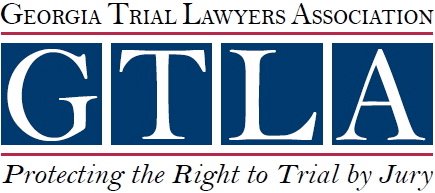Crashes involving large trucks in construction areas are among the most complex and dangerous—especially when lane shifts or merges are involved. In Georgia, work-zone truck accidents can result from a variety of factors, including reduced visibility at night and sudden changes in traffic patterns due to roadwork. Proving negligence in these cases can be challenging, but with the right approach, victims can hold the responsible parties accountable.




Understanding Work Zone Truck Accidents in Georgia
In Georgia, work-zone truck accidents are a serious concern due to the state’s extensive highway system and frequent road construction. These accidents typically occur in construction zones where road conditions change quickly, and drivers are required to adjust to new traffic patterns. What makes these accidents even more dangerous is the fact that they often happen at night, when visibility is limited and drivers may have trouble seeing lane markers, signs, and other vehicles on the road.
Work zones are often marked by large warning signs that inform drivers of lane shifts, reduced speed limits, or other temporary changes in road conditions. However, not all drivers take these warnings seriously, and when trucks are involved, the results can be catastrophic. When truck drivers fail to adjust their speed, follow traffic laws, or take necessary precautions, crashes can occur that result in serious injuries or even fatalities.
The Complexity of Lane Shifts and Merges at Night
One of the most challenging aspects of work-zone truck accidents is the need for quick adjustments to lane shifts or merges. Lane shifts and merges often occur suddenly, and when these changes happen at night, the risks are even greater. Reduced visibility makes it difficult for drivers to see lane markings, road signs, and other vehicles, which increases the likelihood of accidents.
Nighttime driving already comes with its own set of hazards, and when combined with a work zone’s unpredictable traffic patterns, the risk of a crash skyrockets. Truck drivers, due to their larger vehicles, have more difficulty maneuvering through tight spaces or adjusting to lane changes quickly. This is especially true when a lane merge is involved, as trucks often need more space to safely transition into another lane.
In Georgia, the combination of heavy truck traffic, frequent roadwork, and nighttime driving conditions creates an environment where accidents are more likely to occur. Even with advance warnings, drivers who are not vigilant may miss critical signs and fail to slow down or adjust their driving as needed. For this reason, accidents in work zones, particularly those involving trucks, are often more serious and harder to avoid.
Proving Negligence in Work Zone Truck Crashes
Proving negligence in a truck accident is crucial for victims seeking compensation for their injuries. In the context of a work-zone truck accident, several factors need to be proven to establish negligence. First, it must be shown that the truck driver owed a duty of care to others on the road. This is a standard legal requirement for all drivers. Truck drivers, in particular, are required to follow specific safety rules when driving in work zones, such as reducing speed, obeying traffic signals, and staying alert to changes in traffic patterns.
Once the duty of care has been established, the next step is to prove that the truck driver breached this duty. Breach of duty can occur in a variety of ways. For example, if the truck driver fails to slow down when approaching a lane shift, does not use their turn signals when merging into another lane, or fails to adhere to posted speed limits, they may be found negligent. Negligence can also be proven if the driver was distracted or under the influence of alcohol or drugs at the time of the crash.
In addition to the truck driver’s actions, other parties may also be found liable for the accident. For example, if poor road conditions or inadequate signage contributed to the accident, the government agency responsible for maintaining the road could be held accountable. Similarly, if the trucking company failed to properly maintain the vehicle or ensure the driver’s qualifications, they may be found liable for the crash as well.
The Role of Evidence in Proving Negligence
When it comes to proving negligence in a work-zone truck accident, gathering evidence is critical. Victims and their legal teams must collect and preserve evidence that supports their claims. This includes both physical evidence from the accident scene and documentation related to the truck driver’s actions leading up to the crash.
Hiring a Personal Injury Attorney How Long Will a Personal Injury Case Take?Related Videos
One of the first pieces of evidence to collect is the police report. This report contains essential information, such as the location of the accident, witness statements, and the officer’s opinion on fault. In many cases, police officers may also include details about the road conditions, whether there were any lane shifts, or if any signs were missing or unclear.
Witness testimony is another valuable form of evidence. If other drivers were on the road at the time of the accident and saw the truck driver’s actions before the crash, their testimony can help establish negligence. Additionally, statements from pedestrians or bystanders who observed the accident can also be used to support claims of driver error or inadequate road conditions.
In the case of truck accidents, the driver’s logs and records can provide key insight into their behavior. Truck drivers are required to keep detailed logs of their driving hours, rest periods, and any maintenance done on the vehicle. These logs can be used to determine whether the driver was fatigued or if the truck was in need of repairs at the time of the crash.
In some cases, traffic camera footage may also be available. Many highways and interstates in Georgia are equipped with traffic cameras, and footage from these cameras can offer a clear view of the accident as it unfolded. Video evidence can be particularly helpful in proving how the crash happened, especially when there are disputes about fault.
Representative Cases
What to Do After a Work Zone Truck Accident
If you are involved in a work-zone truck accident, it’s important to take the right steps to protect your health and legal rights. The first thing to do is seek medical attention immediately, even if you don’t feel seriously injured. Some injuries, like whiplash or internal injuries, may not show symptoms right away but can be life-threatening if left untreated.
Next, contact law enforcement to report the accident. A police report is an essential piece of evidence in any truck accident case, and it’s important to ensure that all the details are documented. Be sure to cooperate with law enforcement, but avoid admitting fault or making statements that could be misinterpreted later on.
If it’s safe to do so, take photos of the accident scene, including the damage to the vehicles, the road conditions, any missing signs, and other relevant factors. Gathering this evidence early on can help support your case down the road.
Contact an experienced attorney who specializes in truck accident cases. The legal process for proving negligence in a work-zone truck accident can be complicated, and having a knowledgeable attorney by your side can help ensure that your rights are protected.
Work-zone truck accidents in Georgia, particularly those involving lane shifts or merges at night, present unique challenges for victims and their families. Proving negligence in these cases requires a thorough understanding of the law, careful collection of evidence, and a clear demonstration of how the truck driver’s actions or inactions caused the crash. If you have been involved in such an accident, it’s crucial to seek legal representation to navigate the complex process of holding the responsible parties accountable. Princenthal, May & Wilson LLC has years of experience handling truck accident cases in Georgia, and our team is ready to help you pursue justice.





